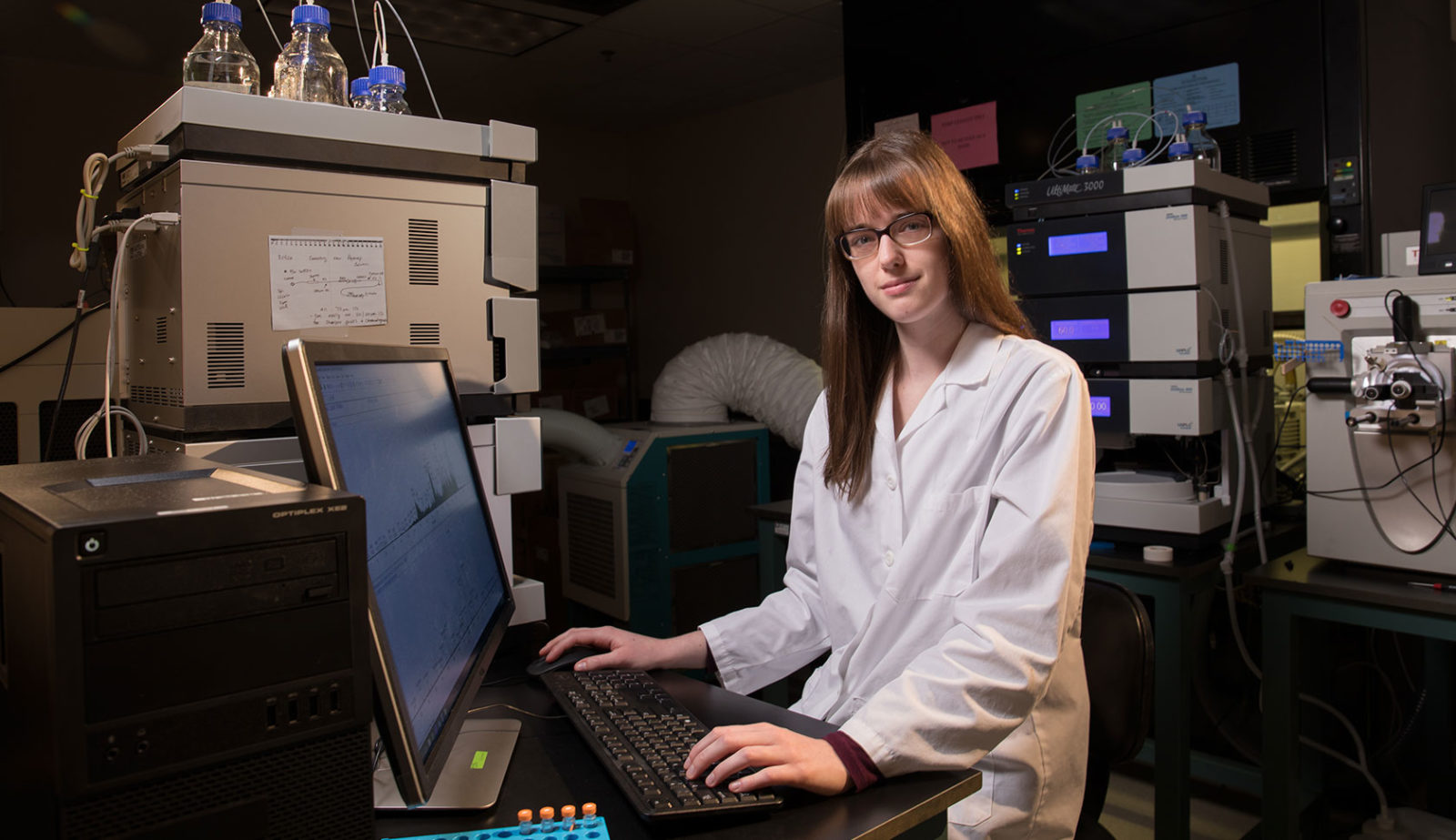Hannah Stephen, a Ph.D. candidate in biochemistry and molecular biology, has received the F30 Ruth L. Kirschstein Individual Fellowship from the National Institutes of Health and the Eunice Kennedy Shriver National Institute of Child Health and Human Development.
“Receiving this fellowship is such an honor and I’m very grateful to the NIH and the NICHD for seeing the importance of my work and the vision of my future work,” said Stephen.
The fellowship provides $166,000 over four years to support Stephen’s research on the mutation of the O-GIcNAc Transferase enzyme and its underlying effect on the X-Linked Intellectual Disability disorder. XLID, which occurs predominately in males, can cause low IQ and developmental delays. Stephen’s research has the potential to not only lead to therapeutic options for XLID, but to also expand veterinary medicine.
“In my long-term career, I hope to bring my expertise to veterinary medical research, where glycobiology is basically unstudied, despite companion animal and human disorders often sharing common molecular mechanisms,” said Stephen.
This fellowship will also provide a travel allowance to help enhance Stephen’s research, which she plans to utilize this summer.
“The travel funding portion of the award is going to allow me to travel to Singapore this summer for a phenomenal training course in a mass spectrometry data analysis program called MaxQuant,” she said. “This is not only a skill that is going to enable me to finish my dissertation research with the highest quality of data analysis and presentation, but also a skill that I can bring back to and train my entire lab group in, benefiting the lab for years to come.”
Stephen works in the laboratory of Lance Wells, a professor in the Franklin College Department of Biochemistry and Molecular Biology, earned her bachelor’s degree from Lipscomb University, and is concurrently earning a DVM in the College of Veterinary Medicine.






